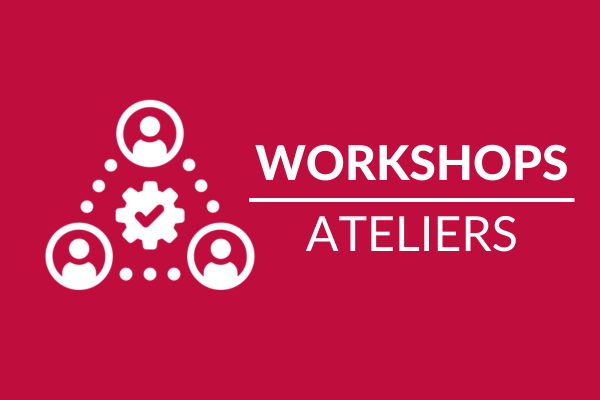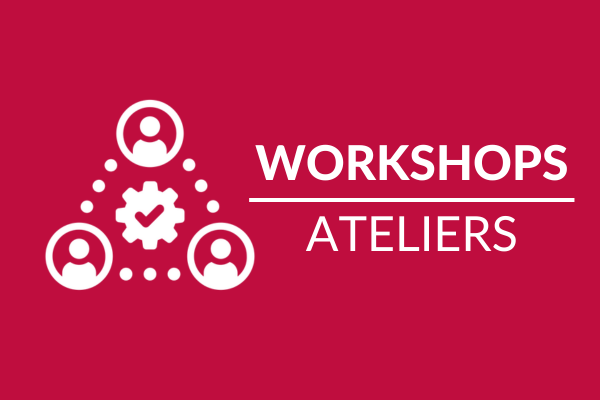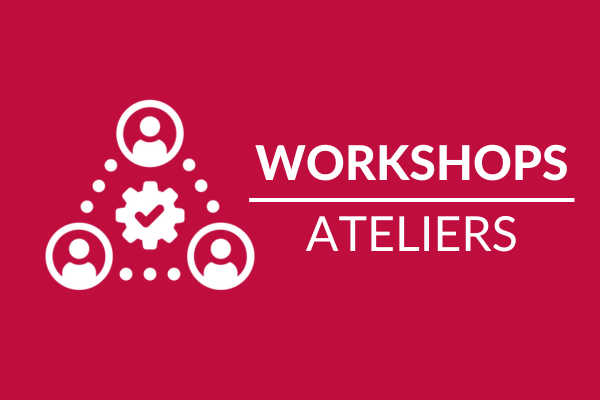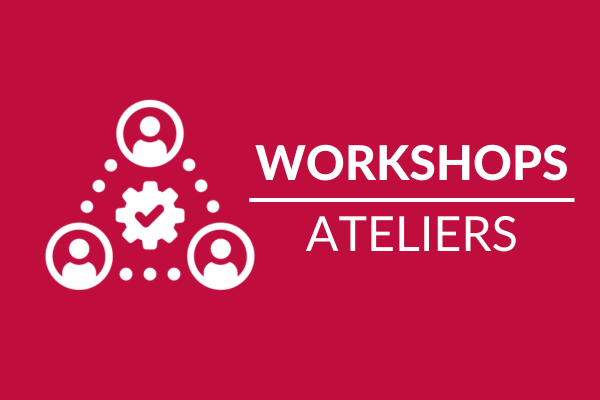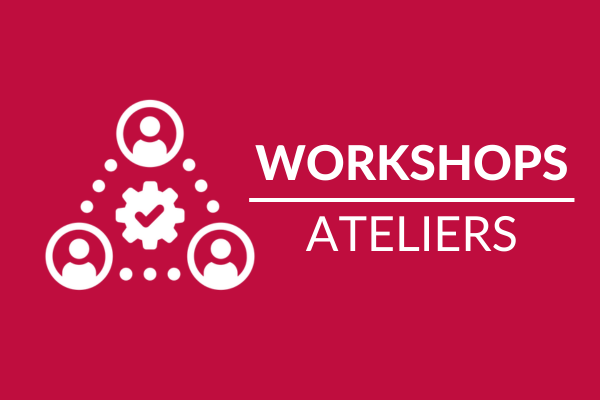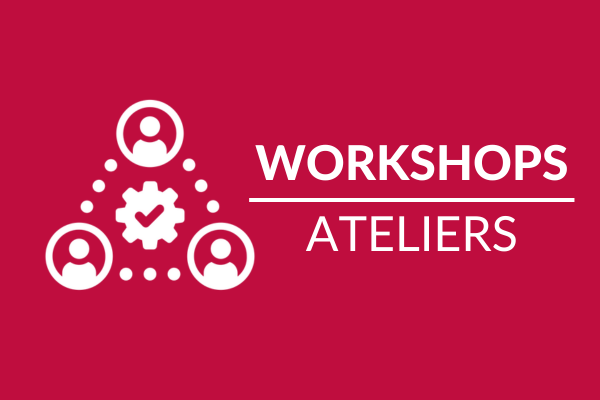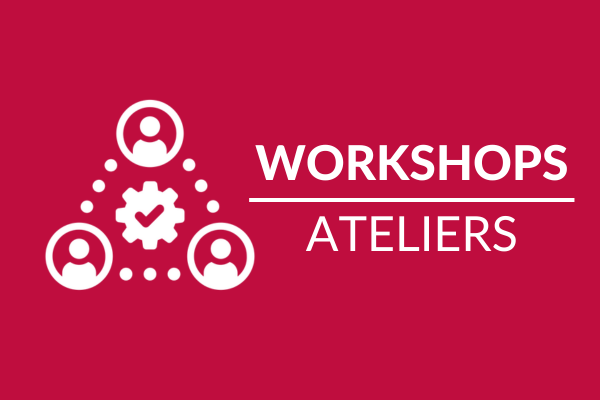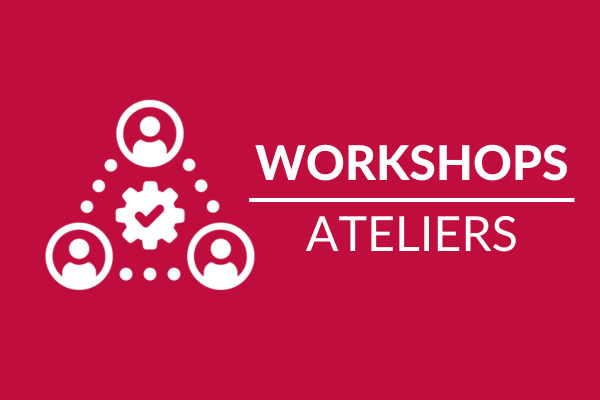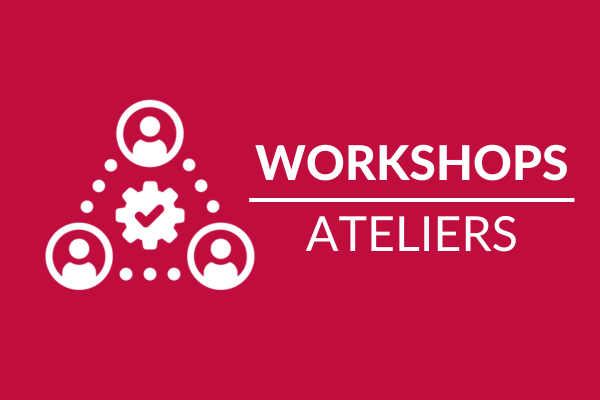
Catalog Advanced Search
-
Contains 6 Component(s), Includes Credits Includes a Live Web Event on 05/01/2026 at 10:00 AM (EDT)
This one-day workshop will explore creative ways that occupational therapists can utilize various acceptance and commitment therapy (ACT) processes to support their clients in living well.
Friday, May 1, 2026
10:00 a.m. - 5:00 p.m. (Eastern Time)
Acceptance and commitment therapy (ACT) and occupational therapy share a consistent body of philosophical assumptions and practical modalities of facilitating health and well-being. For example, both occupational therapy and ACT emphasize meaningful activity, values-based living, pragmatism, and health and the promotion of well-being. Soft and hard skills (concepts and interventions) that work transdiagnostically (Dindo et al., 2017) provide tools to address human suffering in an effective way (Hofmann et al., 2021). Learning ACT will expand the intervention options of occupational therapists to promote a life enriched by participation in meaningful roles and valued occupations, even in the presence of pain.
This one-day workshop will explore creative ways that occupational therapists can utilize various acceptance and commitment therapy (ACT) processes to support their clients in living well. Throughout the workshop, connections will be drawn between ACT as an intervention and occupational therapy as a profession. ACT will be described and compared to cognitive behavioural therapy (CBT). Foundational concepts and processes in ACT – including functional contextualism, pragmatism, creative hopelessness, workability, psychological flexibility, the Hexaflex model, acceptance, experiential avoidance, cognitive fusion and defusion, and contact with the present moment – will be explored and applied to occupational therapy practice. The structure of ACT sessions in single-session and multiple-session therapy will be outlined. Experiential exercises, metaphors, and small group discussions will be used throughout the workshop to support participants in applying the information from the workshop to their practice.
Preliminary workshop agenda
10:00 - 11:30 a.m. (ET) ACT as part of the third wave of cognitive behavioural therapies. Behaviour and context ACT as a CBT therapy - Similarities and differences - CBT and ACT interventions side by side - illustration.
ACT as a transdiagnostic modality
Human suffering - Healthy normality vs. destructive normality: Assumptions that shape the way we act as health care providers
ACT foundation - Functional contextualism. Pragmatism. A pragmatic truth.11:30 - 11:45 a.m. (ET) Break 11:45 a.m. - 1:15 p.m. (ET) Why do people come to therapy? The control agenda.
Creative hopelessness and workability - A possible way to start ACT work.
Psychological flexibility - The Holy Grail of ACT. The Hexaflex model. Processes associated with well-being and psychopathology, respectively.
Acceptance and experiential avoidance. Promoting acceptance and willingness through experiential exercises and metaphors. Building skills to promote acceptance and willingness.
Cognitive fusion and defusion. Building skills to promote cognitive defusion - Experiential exercises and metaphors.
Contact with the present moment. Promoting contact with the present moment - Experiential exercises and metaphors1:15 - 1:45 p.m. (ET) Break 1:45 - 3:15 p.m. (ET) Self as context - The observing self. Expanding the sense of self to promote the observing self - experiential exercises and metaphors.
Values clarification. Helping the client clarify their values. Experiential exercises and metaphors.
Committed action. Establishing and maintaining patterns of value-based behaviours. Building skills through experiential exercises and metaphors.
A deeper dive in understanding the power and utility of therapeutic metaphors in initiating and supporting change. Principles of change and the use of metaphors to promote behavioural change.
The ACT Matrix - Conceptualizing the clients' presentation and structuring interventions. Using the ACT Matrix for single session intervention. Applications and examples. In session modelling and practice.3:15 - 3:30 p.m. (ET) Break 3:30 - 5:00 p.m. (ET) The ACT Matrix - Conceptualizing the clients' presentation and structuring interventions.
Using the ACT Matrix for single session intervention. Applications and examples.
In session modelling and practice.Learning objectives
By the end of this workshop, you will be able to:
- Explain some basic ACT assumptions and philosophical foundations, including functional contextualism, pragmatism, ACT as a third wave CBT modality, and healthy normality vs. destructive normality.
- Apply the ACT Hexaflex to address psychopathology and promote well-being in occupational therapy.
- Promote psychological flexibility by using these six processes: acceptance, cognitive defusion, contact with the present moment, self as context, values clarification, and committed action.
- Use therapeutic metaphors to initiate and support healthy behavioural change as well as to facilitate occupational participation.
- Use the ACT Matrix process to conceptualize clinical presentations transdiagnostically, and to promote and support healthy behavioural change in various health care settings.
Target audience
Occupational therapist clinicians and educators who wish to learn how to use acceptance and commitment therapy (ACT) effectively to support their clients in living well, even in the presence of psycho-emotional pain. Students in occupational therapy programs are also welcome to participate.
Please note: Each participant is responsible to ensure they apply the information within the context of their licensure, provincial/territorial legislations, institution regulations, scope of practice, etc.
Client age group
Adolescents (13-19 years old), Adults (20-64 years old), Older adults (65+ years old)
Areas of practice
Case Management, Chronic Disease Management, Chronic Pain, Cognition, Forensic Mental Health, Mental Health, Primary Care, Psychotherapy, Return to Work, Substance Use/Addiction.
Workshop level
Intermediate (3-5 years of experience in this specific practice area)
Please note: Participants with more or less than this stated level of experience are welcome to attend the workshop. The workshop content will be geared towards those with 3-5 years of experience.
Presenter
Catalin Fecior, OT Reg. (Ont.)
Cata Fecior has been practicing as an occupational therapist/mental health counsellor in primary care for 13 years. He currently works for the Hamilton Family Health Team where he facilitates therapeutic change via individual and group therapy. After training and practicing with more traditional CBT models, he found himself attracted (and at times confused and perplexed) by the philosophy of functional contextualism and the practice of acceptance and commitment therapy. He has been infected with an indelible virus: the virus of the ACT Matrix, which has fundamentally changed the way he relates and practices with clients (and himself). At his current workplace, he has been facilitating an acceptance and commitment therapy community of practice, where clinicians with ACT affinities meet to discuss and practice ACT-related skills. He developed an ACT-based therapeutic group that has been running for the last three years. He has facilitated ACT workshops, more recently for the Ontario Society of Occupational Therapists and as part of the continuing professional education for The Department of Psychiatry & Behavioural Neuroscience at McMaster University. His interests outside work include playing music with no audience, being on a tennis court, as well as reading and practicing Zen Buddhism to the best of his abilities.
Registration fees
Early bird rates: Registration and payment completed by March 4, 2026
CAOT Members and Associates CAOT Student/ Provisional Associates & Retired Members Non-member* $220 $195 $275 Regular rates: Registration and payment completed after March 4, 2026
CAOT Members and Associates CAOT Student/ Provisional Associates & Retired Members Non-member* $270 $245 $325 Registration deadline: May 1, 2026 at 9:59 a.m. (Eastern Time)
Please note that CAOT does not offer group registration fees.
*It may be more cost effective to become a CAOT Member or Associate rather than pay the non-member rate. See “Can a non-member register for a Workshop?” in our Professional Development FAQs to know which membership category you are eligible for.
Included in your registration fee:
Online workshop, access to the recording for a period of 14 days following the workshop, electronic copy of presentation slide handouts, opportunity to network and make connections with other occupational therapists interested in this topic, electronic certificate of attendance.
Cancellation/refund policy
All cancellation/refund requests must be sent in writing to education@caot.ca. All cancellation requests received by April 15, 2026 will be given a full refund minus a $50.00 administrative fee. No refunds will be given after April 15, 2026. Substitutions and transfers requests received by April 15, 2026 are permitted and are subject to a $50.00 administrative fee.
If you are exceptionally unable to complete the workshop, please reach out to education@caot.ca by 25 days following the end of the workshop for extended access to the recording (up to one month after the end of the workshop) or a one-time transfer to another offering of the same workshop if currently open for registration.
CAOT reserves the right to modify the workshop title, description, registration dates and information on the workshop webpage. CAOT will notify participants on or before March 20, 2026, if there is insufficient registration by that date and reserves the right to cancel a Workshop due to insufficient registration up until April 3, 2026. CAOT reserves the right to modify the offering, interrupt Workshops, change the timing of a Workshop, cancel a Workshop or change the technology for the Workshop due to the presenter no longer being able to present the Workshop, severe weather, power failure, building closures or other special circumstances that are beyond the control of CAOT by notifying participants as soon as possible. If the Workshop is cancelled by CAOT, registrants will receive a full refund of the registration fee. CAOT will not be responsible for other costs or expenses incurred by registrants as a result of any such changes.
 Provide suggestions for Professional Development
Provide suggestions for Professional Development
The Canadian Association of Occupational Therapists (CAOT) is committed to accessibility as expressed in the Accessibility for Ontarians with Disabilities Act (AODA). We provide an electronic copy of the handouts approximately one week ahead of time in multiple slide layouts, auto-generated closed captioning through Zoom (excluding breakout rooms), as well as access to the recording for two weeks following the workshop. If you require additional special arrangements for accessibility, please contact education@caot.ca or 1-800-434-2268.Please note that workshop is offered in English.

Catalin Fecior, OT Reg. (Ont.)
Cata Fecior has been practicing as an occupational therapist/mental health counsellor in primary care for 13 years. He currently works for the Hamilton Family Health Team where he facilitates therapeutic change via individual and group therapy. After training and practicing with more traditional CBT models, he found himself attracted (and at times confused and perplexed) by the philosophy of functional contextualism and the practice of acceptance and commitment therapy. He has been infected with an indelible virus: the virus of the ACT Matrix, which has fundamentally changed the way he relates and practices with clients (and himself). At his current workplace, he has been facilitating an acceptance and commitment therapy community of practice, where clinicians with ACT affinities meet to discuss and practice ACT-related skills. He developed an ACT-based therapeutic group that has been running for the last three years. He has facilitated ACT workshops, more recently for the Ontario Society of Occupational Therapists and as part of the continuing professional education for The Department of Psychiatry & Behavioural Neuroscience at McMaster University. His interests outside work include playing music with no audience, being on a tennis court, as well as reading and practicing Zen Buddhism to the best of his abilities.
-
You must log in to register
- Early bird pricing available!
- Non-member - $275
- Members and Associates - $220
- Student/Provisional/Retured - $195
- New Practitioner - $220
- OTA - $220
- Regular Price after 03/04/2026 2:55 AM
- Non-member - $325
- Members and Associates - $270
- Student/Provisional/Retured - $245
- New Practitioner - $270
- OTA - $270
- More Information
-
Contains 6 Component(s), Includes Credits Includes a Live Web Event on 01/09/2026 at 10:00 AM (EST)
In this workshop, we will explore nervous system regulation, brain retraining, and relevant OT strategies for managing anxiety. We’ll discuss techniques like deep breathing, mindfulness, and sensory modulation to help clients regulate their nervous system. The session will cover brain retraining through neuroplasticity, focusing on reshaping anxiety-related thought patterns. Participants will learn practical OT strategies such as graded exposure, self-compassion, and cognitive restructuring to enhance emotional regulation and daily functioning. Emphasizing a client-centered approach, we will provide tools for OTs to tailor interventions and support clients with anxiety, fostering resilience and improving overall well-being.
Online Workshop
Friday, January 9, 2026
10:00 a.m. - 5:00 p.m. (Eastern Time)
Anxiety disorders are prevalent in Canada, affecting approximately 5.2% of individuals aged 15 and older, with a notable increase from 2.6% in 2012 to 5.2% in 2022. These conditions significantly impact daily functioning, with 27% of those affected reporting substantial interference in their lives. Occupational therapists (OTs) are uniquely positioned to assist clients with anxiety by employing therapeutic interventions that address the physical, emotional, and cognitive aspects of anxiety. Through personalized strategies, OTs can enhance clients' coping mechanisms, improve daily functioning, and promote overall well-being. Given the rising prevalence of anxiety disorders in Canada, integrating OT services into mental health care is essential to provide comprehensive support for individuals affected by anxiety.
In this workshop, we will explore nervous system regulation, brain retraining, and relevant OT strategies for managing anxiety. We’ll discuss techniques like deep breathing, mindfulness, and sensory modulation to help clients regulate their nervous system. The session will cover brain retraining through neuroplasticity, focusing on reshaping anxiety-related thought patterns. Participants will learn practical OT strategies such as graded exposure, self-compassion, and cognitive restructuring to enhance emotional regulation and daily functioning. Emphasizing a client-centered approach, we will provide tools for OTs to tailor interventions and support clients with anxiety, fostering resilience and improving overall well-being.
Preliminary workshop agenda
10:00 - 11:30 a.m. (ET) - The science of anxiety
11:30 - 11:45 a.m. (ET) Break 11:45 a.m. - 1:15 p.m. (ET) - OT role in anxiety management
1:15 - 1:45 p.m. (ET) Break 1:45 - 3:15 p.m. (ET) - Intervention strategies and practice sessions
3:15 - 3:30 p.m. (ET) Break 3:30 - 5:00 p.m. (ET) - Intervention strategies and practice sessions continued
By the end of this workshop, you will learn evidence-based strategies for nervous system regulation, brain retraining, and client-centered OT interventions to effectively support clients managing anxiety
Target audience
Occupational therapist clinicians and educators who wish to learn how to use acceptance and commitment therapy (ACT) effectively to support their clients in living well, even in the presence of psycho-emotional pain. Students in occupational therapy programs are also welcome to participate.
Please note: Each participant is responsible to ensure they apply the information within the context of their licensure, provincial/territorial legislations, institution regulations, scope of practice, etc.
Client age group
Children (5-12 years old) Adolescents (13-19 years old) Adults (20-64 years old) Older adults (65+ years old)
Areas of practice
Acute Care Autism/Neurodiversity Brain injury/Concussion/Spinal Cord Cancer Care Cardio-Respiratory Care Case Management Chronic Disease Management Chronic Pain Education & Fieldwork Forensic Mental Health Generalist Global Health Hand Therapy Health Promotion & Wellness Indigenous Health Mental Health MSK Rehabilitation MVA Rehabilitation Neurology Older Adults Primary Care Psychotherapy Return to Work Sensory Integration & Processing Service/Business Administration Sexuality & Gender Substance Use/Addictions Veterans Affairs or Armed Forces
Workshop level
Beginner (0-2 years of experience in this specific practice area)
Please note: Participants with more or less than this stated level of experience are welcome to attend the workshop. The workshop content will be geared towards those with 3-5 years of experience.
Presenter
Zara Dureno
Zara Dureno is an Occupational Therapist with extensive experience and training in Mental Health, ME/CFS, long COVID, chronic pain, and concussion recovery. With a compassionate, holistic, and evidence-based approach, she helps clients regulate their nervous systems, build resilience, and reclaim their lives. Informed by her own recovery from chronic conditions and her love of neuroscience, Zara integrates many holistic and evidence-based to support lasting change. As a presenter, she is passionate about sharing practical strategies that empower both clients and clinicians in their journey toward healing and well-being.
Registration fees
Early bird rates: Registration and payment completed by November 12, 2025
CAOT Members and Associates CAOT Student/ Provisional Associates & Retired Members Non-member* $220 $195 $275 Regular rates: Registration and payment completed after November 12, 2025
CAOT Members and Associates CAOT Student/ Provisional Associates & Retired Members Non-member* $270 $245 $325 Registration deadline: January 9, 2026 at 9:59 a.m. (Eastern Time)
Please note that CAOT does not offer group registration fees. *It may be more cost effective to become a CAOT Member or Associate rather than pay the non-member rate. See “Can a non-member register for a Workshop?” in our Professional Development FAQs to know which membership category you are eligible for.
Included in your registration fee:
Online workshop, access to the recording for a period of 14 days following the workshop, electronic copy of presentation slide handouts, opportunity to network and make connections with other occupational therapists interested in this topic, electronic certificate of attendance.
Cancellation/refund policy
All cancellation/refund requests must be sent in writing to education@caot.ca. All cancellation requests received by December 24, 2025 will be given a full refund minus a $50.00 administrative fee. No refunds will be given after December 24, 2025. Substitutions and transfers requests received by December 24, 2025 are permitted and are subject to a $50.00 administrative fee.
If you are exceptionally unable to complete the workshop, please reach out to education@caot.ca by 25 days following the end of the workshop for extended access to the recording (up to one month after the end of the workshop) or a one-time transfer to another offering of the same workshop if currently open for registration. CAOT reserves the right to modify the workshop title, description, registration dates and information on the workshop webpage. CAOT will notify participants on or before November 28, 2025 if there is insufficient registration by that date and reserves the right to cancel a Workshop due to insufficient registration up until December 12, 2025. CAOT reserves the right to modify the offering, interrupt Workshops, change the timing of a Workshop, cancel a Workshop or change the technology for the Workshop due to the presenter no longer being able to present the Workshop, severe weather, power failure, building closures or other special circumstances that are beyond the control of CAOT by notifying participants as soon as possible. If the Workshop is cancelled by CAOT, registrants will receive a full refund of the registration fee. CAOT will not be responsible for other costs or expenses incurred by registrants as a result of any such changes.
 Provide suggestions for Professional Development
Provide suggestions for Professional Development
The Canadian Association of Occupational Therapists (CAOT) is committed to accessibility as expressed in the Accessibility for Ontarians with Disabilities Act (AODA). We provide an electronic copy of the handouts approximately one week ahead of time in multiple slide layouts, auto-generated closed captioning through Zoom (excluding breakout rooms), as well as access to the recording for two weeks following the workshop. If you require additional special arrangements for accessibility, please contact education@caot.ca or 1-800-434-2268.Please note that workshop is offered in English.
-
You must log in to register
- Early bird pricing available!
- Non-member - $275
- Members and Associates - $220
- Student/Provisional/Retured - $195
- New Practitioner - $220
- OTA - $220
- Regular Price after 11/13/2025 2:55 AM
- Non-member - $325
- Members and Associates - $270
- Student/Provisional/Retured - $245
- New Practitioner - $270
- OTA - $270
- More Information
-
Contains 7 Component(s), Includes Credits Includes a Live Web Event on 11/28/2025 at 12:00 PM (EST)
This workshop will provide an opportunity for occupational therapy professionals in or interested in formal management activities to reflection upon the skills and tools they need to be successful in management positions.
-
You must log in to register
- Early bird pricing available!
- Non-member - $165
- Members and Associates - $130
- Student/Provisional/Retured - $105
- New Practitioner - $130
- OTA - $130
- Regular Price after 10/01/2025 11:59 PM
- Non-member - $215
- Members and Associates - $180
- Student/Provisional/Retured - $155
- New Practitioner - $180
- OTA - $180
- More Information
-
You must log in to register
-
Contains 6 Component(s), Includes Credits Includes a Live Web Event on 11/21/2025 at 11:00 AM (EST)
This one-day workshop will help occupational therapists support clients with ADHD by deepening their understanding of sensory processing differences and learning to apply research-based strategies and accommodations.
Friday, November 21, 2025
11:00 a.m. - 5:00 p.m. (Eastern Time)
Though research on sensory processing is limited, literature suggests that there is an increased prevalence of sensory processing differences including sensory sensitivity in individuals with ADHD compared to neuro-typicals (Panagiotidi et al., 2020; Adra et al., 2021). It appears that many ADHDers experience hypo-registration and hyper-registration of stimuli daily, causing challenges in their daily function and mental health.
This one-day workshop will help occupational therapists support clients with ADHD by deepening their understanding of sensory processing differences and learning to apply research-based strategies and accommodations. Through research-backed knowledge in the occupational therapy field regarding strategies for sensory challenges, this workshop aims to educate attendees on how sensory challenges often manifest, and what strategies, accommodations and modifications can be made to improve daily comfort and function. Participants will learn what sensory processing is and how we can tailor our environments and behavior in a way that meets our sensory needs. Participants will gain reflection skills to implement relevant sensory strategies to improve productivity and increase comfort in their daily lives. The workshop first describes the various “stimuli” we experience daily by highlighting our 8 senses. Following this, the presenter will introduce Dunn’s Model of Sensory Processing (Dunn, W., 1997, 2014) which classifies sensory responses into four quadrants based on their sensory registration and self-regulation strategies. Participants will learn to identify their patterns within these quadrants and how they can tailor their environments and routines to better align with their sensory preferences, thus increasing productivity and reducing overstimulation and discomfort. Strategies for managing sensory challenges are multifaceted, combining practical approaches with mindfulness-based emotional regulation techniques to increase tolerance to stimulating environments.
Preliminary workshop agenda
11:00 a.m. - 12:30 p.m. (ET) Understanding Sensory Processing and ADHD
• SPD
• ADHD
• 8 Senses
• Dunn’s Model of Sensory Processing12:30 - 12:45 p.m. (ET) Break 12:45 a.m. - 2:00 p.m. (ET) Understanding the impacts of overstimulation and emotional regulation challenges
• Intervention practice - group Mindful Activity
• Overstimulation, analysis paralysis
• Executive functions
• Emotional regulation2:00 - 2:30 p.m. (ET) Break 2:30 - 3:30 p.m. (ET) Intervention strategies and case studies/practice
• Sensory Preferences Screeners
• Sensory strategies (rooms, carts)
• The ‘Stimulation Battery’ ©3:30 - 3:35 p.m. (ET) Break 3:35 - 5:00 p.m. (ET) Intervention strategies and case studies/practice Continued
• Tailoring Environments (low/high stim enviros)
• Dopamine button
• Mindfulness
• OT classics - Pacing, Just right challenge, co-regulation
• Bonus: compensatory cognitive strategies for executive function challenges if time allowsLearning objectives
By the end of this workshop, you will be able to:
- Explain the relationship between Sensory Processing Disorder and ADHD, including common manifestations in daily life.
- Identify personal sensory preferences and challenges using reflective frameworks.
- Apply strategies such as pacing (via the Stimulation Battery) and mindfulness-based emotional regulation to enhance comfort and productivity in daily routines.
- Modify home and work environments to align with sensory preferences and reduce overstimulation.
- Differentiate between low-stimulation and high-stimulation environments to support effective daily planning and prevent sensory overload.
Target audience
Occupational therapist clinicians, Students in occupational therapy programs, Occupational therapist educators who wish to support clients with ADHD by deepening their understanding of sensory processing differences and learning to apply research-based strategies and accommodations.
Please note: Each participant is responsible to ensure they apply the information within the context of their licensure, provincial/territorial legislations, institution regulations, scope of practice, etc.
Client age group
Adolescents (13-19 years old), Adults (20-64 years old)
Areas of practice
Autism/Neurodiversity, Mental Health, Sensory Integration & Processing
Workshop level
Beginner (0-2 years of experience in this specific practice area)
Please note: Participants with more than this stated level of experience are welcome to attend the workshop. The workshop content will be geared towards those with 0-2 years of experience.
Presenter
Krysta Longridge, MScOT
Krysta is the founder of Mindful Mountains, an Occupational Therapy Clinic that specializes in working with Adults with ADHD. She has a Master of Sciences in Occupational Therapy and Bachelor of Fine Arts in Film with an extended minor in Communications. Krysta’s experience in physical, neurological, and mental health have allowed for a holistic approach to wellness. Her desire is to empower individuals to thrive through an improved understanding of their bodies, brain, and abilities.
Registration fees
Early bird rates: Registration and payment completed by September 24, 2025
CAOT Members and Associates CAOT Student/ Provisional Associates & Retired Members Non-member* $220 $195 $275 Regular rates: Registration and payment completed after September 24, 2025
CAOT Members and Associates CAOT Student/ Provisional Associates & Retired Members Non-member* $270 $245 $325 Registration deadline: November 21, 2025 at 10:59 a.m. (Eastern Time)
Please note that CAOT does not offer group registration fees.
*It may be more cost effective to become a CAOT Member or Associate rather than pay the non-member rate. See “Can a non-member register for a Workshop?” in our Professional Development FAQs to know which membership category you are eligible for.
Included in your registration fee:
Online workshop, access to the recording for a period of 14 days following the workshop, electronic copy of presentation slide handouts, opportunity to network and make connections with other occupational therapists interested in this topic, electronic certificate of attendance.
Cancellation/refund policy
All cancellation/refund requests must be sent in writing to education@caot.ca. All cancellation requests received by November 5, 2025 will be given a full refund minus a $50.00 administrative fee. No refunds will be given after November 5, 2025. Substitutions and transfers requests received by November 5, 2025 are permitted and are subject to a $50.00 administrative fee.
If you are exceptionally unable to complete the workshop, please reach out to education@caot.ca by 25 days following the end of the workshop for extended access to the recording (up to one month after the end of the workshop) or a one-time transfer to another offering of the same workshop if currently open for registration.
CAOT reserves the right to modify the workshop title, description, registration dates and information on the workshop webpage. CAOT will notify participants on or before October 10, 2025, if there is insufficient registration by that date and reserves the right to cancel a Workshop due to insufficient registration up until October 24, 2025. CAOT reserves the right to modify the offering, interrupt Workshops, change the timing of a Workshop, cancel a Workshop or change the technology for the Workshop due to the presenter no longer being able to present the Workshop, severe weather, power failure, building closures or other special circumstances that are beyond the control of CAOT by notifying participants as soon as possible. If the Workshop is cancelled by CAOT, registrants will receive a full refund of the registration fee. CAOT will not be responsible for other costs or expenses incurred by registrants as a result of any such changes.
 Provide suggestions for Professional Development
Provide suggestions for Professional Development
The Canadian Association of Occupational Therapists (CAOT) is committed to accessibility as expressed in the Accessibility for Ontarians with Disabilities Act (AODA). We provide an electronic copy of the handouts approximately one week ahead of time in multiple slide layouts, auto-generated closed captioning through Zoom (excluding breakout rooms), as well as access to the recording for two weeks following the workshop. If you require additional special arrangements for accessibility, please contact education@caot.ca or 1-800-434-2268.Please note that workshop is offered in English.

Moira Pena
BScOT, MOT, OT Reg. (Ont.)
Moira is an occupational therapist with over 25 years of experience supporting autistic children, youth, and their families. She works at Holland Bloorview Kids Rehabilitation Hospital and is the founder of Moira Peña Sensory Workshops, where she delivers professional development trainings. She is the creator and host of Holland Bloorview’s Autism Summit, a knowledge-sharing initiative featuring two international summits, a coaching program for occupational therapists, an open-access autism toolkit, and the Autism Occupational Therapy Guiding Principles—co-developed in collaboration with autistic individuals, families, and professionals. Moira is also an Expert Hub Team member of the ECHO Ontario Autism Program, supporting clinicians and educators in implementing best practices in autism care. She is a published author, an Adjunct Lecturer at the University of Toronto, and a certified Solution-Focused Healthcare Facilitator and Coach (C-SFHC).
-
You must log in to register
- Early bird pricing available!
- Non-member - $275
- Members and Associates - $220
- Student/Provisional/Retured - $195
- New Practitioner - $220
- OTA - $220
- Regular Price after 09/24/2025 2:55 AM
- Non-member - $325
- Members and Associates - $270
- Student/Provisional/Retured - $245
- New Practitioner - $270
- OTA - $270
- More Information
-
Contains 6 Component(s), Includes Credits Includes a Live Web Event on 10/24/2025 at 10:00 AM (EDT)
This one-day workshop will explore creative ways that occupational therapists can utilize various acceptance and commitment therapy (ACT) processes to support their clients in living well. Throughout the workshop, connections will be drawn between ACT as an intervention and occupational therapy as a profession. ACT will be described and compared to cognitive behavioural therapy (CBT).
Friday, October 24, 2025
10:00 a.m. - 5:00 p.m. (Eastern Time)
Acceptance and commitment therapy (ACT) and occupational therapy share a consistent body of philosophical assumptions and practical modalities of facilitating health and well-being. For example, both occupational therapy and ACT emphasize meaningful activity, values-based living, pragmatism, and health and the promotion of well-being. Soft and hard skills (concepts and interventions) that work transdiagnostically (Dindo et al., 2017) provide tools to address human suffering in an effective way (Hofmann et al., 2021). Learning ACT will expand the intervention options of occupational therapists to promote a life enriched by participation in meaningful roles and valued occupations, even in the presence of pain.
This one-day workshop will explore creative ways that occupational therapists can utilize various acceptance and commitment therapy (ACT) processes to support their clients in living well. Throughout the workshop, connections will be drawn between ACT as an intervention and occupational therapy as a profession. ACT will be described and compared to cognitive behavioural therapy (CBT). Foundational concepts and processes in ACT – including functional contextualism, pragmatism, creative hopelessness, workability, psychological flexibility, the Hexaflex model, acceptance, experiential avoidance, cognitive fusion and defusion, and contact with the present moment – will be explored and applied to occupational therapy practice. The structure of ACT sessions in single-session and multiple-session therapy will be outlined. Experiential exercises, metaphors, and small group discussions will be used throughout the workshop to support participants in applying the information from the workshop to their practice.
Preliminary workshop agenda
10:00 - 11:30 a.m. (ET) - ACT as part of the third wave of cognitive behavioural therapies. Behaviour and context ACT as a CBT therapy - Similarities and differences - CBT and ACT interventions side by side - illustration.
- ACT as a transdiagnostic modality
- Human suffering - Healthy normality vs. destructive normality: Assumptions that shape the way we act as health care providers
- ACT foundation - Functional contextualism. Pragmatism. A pragmatic truth.11:30 - 11:45 a.m. (ET) Break 11:45 a.m. - 1:15 p.m. (ET) - Why do people come to therapy? The control agenda.
- Creative hopelessness and workability - A possible way to start ACT work
- Psychological flexibility - The Holy Grail of ACT. The Hexaflex model. Processes associated with well-being and psychopathology, respectively.
- Acceptance and experiential avoidance. Promoting acceptance and willingness through experiential exercises and metaphors. Building skills to promote acceptance and willingness.
- Cognitive fusion and defusion. Building skills to promote cognitive defusion - Experiential exercises and metaphors.
- Contact with the present moment. Promoting contact with the present moment - Experiential exercises and metaphors1:15 - 1:45 p.m. (ET) Break 1:45 - 3:15 p.m. (ET) - Self as context - The observing self. Expanding the sense of self to promote the observing self - experiential exercises and metaphors.
- Values clarification. Helping the client clarify their values. Experiential exercises and metaphors.
- Committed action. Establishing and maintaining patterns of value-based behaviours. Building skills through experiential exercises and metaphors
- A deeper dive in understanding the power and utility of therapeutic metaphors in initiating and supporting change. Principles of change and the use of metaphors to promote behavioural change.
- The ACT Matrix - Conceptualizing the clients' presentation and structuring interventions. Using the ACT Matrix for single session intervention. Applications and examples. In session modelling and practice3:15 - 3:30 p.m. (ET) Break 3:30 - 5:00 p.m. (ET) - The ACT Matrix - Conceptualizing the clients' presentation and structuring interventions.
- Using the ACT Matrix for single session intervention. Applications and examples.
- In session modelling and practice.Learning objectives
By the end of this workshop, you will be able to:
- Explain some basic ACT assumptions and philosophical foundations, including functional contextualism, pragmatism, ACT as a third wave CBT modality, and healthy normality vs. destructive normality.
- Apply the ACT Hexaflex to address psychopathology and promote well-being in occupational therapy.
- Promote psychological flexibility by using these six processes: acceptance, cognitive defusion, contact with the present moment, self as context, values clarification, and committed action.
- Use therapeutic metaphors to initiate and support healthy behavioural change as well as to facilitate occupational participation.
- Use the ACT Matrix process to conceptualize clinical presentations transdiagnostically, and to promote and support healthy behavioural change in various health care settings.
Target audience
Occupational therapist clinicians and educators who wish to learn how to use acceptance and commitment therapy (ACT) effectively to support their clients in living well, even in the presence of psycho-emotional pain. Students in occupational therapy programs are also welcome to participate.
Please note: Each participant is responsible to ensure they apply the information within the context of their licensure, provincial/territorial legislations, institution regulations, scope of practice, etc.
Client age group
Adolescents (13-19 years old), Adults (20-64 years old), Older adults (65+ years old)
Areas of practice
Case Management, Chronic Disease Management, Chronic Pain, Cognition, Forensic Mental Health, Mental Health, Primary Care, Psychotherapy, Return to Work, Substance Use/Addiction.
Workshop level
Intermediate (3-5 years of experience in this specific practice area)
Please note: Participants with more or less than this stated level of experience are welcome to attend the workshop. The workshop content will be geared towards those with 3-5 years of experience.
Presenter
Catalin Fecior, OT Reg. (Ont.)
Cata Fecior has been practicing as an occupational therapist/mental health counsellor in primary care for 13 years. He currently works for the Hamilton Family Health Team where he facilitates therapeutic change via individual and group therapy. After training and practicing with more traditional CBT models, he found himself attracted (and at times confused and perplexed) by the philosophy of functional contextualism and the practice of acceptance and commitment therapy. He has been infected with an indelible virus: the virus of the ACT Matrix, which has fundamentally changed the way he relates and practices with clients (and himself). At his current workplace, he has been facilitating an acceptance and commitment therapy community of practice, where clinicians with ACT affinities meet to discuss and practice ACT-related skills. He developed an ACT-based therapeutic group that has been running for the last three years. He has facilitated ACT workshops, more recently for the Ontario Society of Occupational Therapists and as part of the continuing professional education for The Department of Psychiatry & Behavioural Neuroscience at McMaster University. His interests outside work include playing music with no audience, being on a tennis court, as well as reading and practicing Zen Buddhism to the best of his abilities.
Registration fees
Early bird rates: Registration and payment completed by August 27, 2025
CAOT Members and Associates CAOT Student/ Provisional Associates & Retired Members Non-member* $220 $195 $275 Regular rates: Registration and payment completed after August 27, 2025
CAOT Members and Associates CAOT Student/ Provisional Associates & Retired Members Non-member* $270 $245 $325 Registration deadline: October 24, 2025 at 9:59 a.m. (Eastern Time)
Please note that CAOT does not offer group registration fees.
*It may be more cost effective to become a CAOT Member or Associate rather than pay the non-member rate. See “Can a non-member register for a Workshop?” in our Professional Development FAQs to know which membership category you are eligible for.
Included in your registration fee:
Online workshop, access to the recording for a period of 14 days following the workshop, electronic copy of presentation slide handouts, opportunity to network and make connections with other occupational therapists interested in this topic, electronic certificate of attendance.
Cancellation/refund policy
All cancellation/refund requests must be sent in writing to education@caot.ca. All cancellation requests received by October 8, 2025 will be given a full refund minus a $50.00 administrative fee. No refunds will be given after October 8, 2025. Substitutions and transfers requests received by October 8, 2025 are permitted and are subject to a $50.00 administrative fee.
If you are exceptionally unable to complete the workshop, please reach out to education@caot.ca by 25 days following the end of the workshop for extended access to the recording (up to one month after the end of the workshop) or a one-time transfer to another offering of the same workshop if currently open for registration.
CAOT reserves the right to modify the workshop title, description, registration dates and information on the workshop webpage. CAOT will notify participants on or before September 12, 2025, if there is insufficient registration by that date and reserves the right to cancel a Workshop due to insufficient registration up until September 26, 2025. CAOT reserves the right to modify the offering, interrupt Workshops, change the timing of a Workshop, cancel a Workshop or change the technology for the Workshop due to the presenter no longer being able to present the Workshop, severe weather, power failure, building closures or other special circumstances that are beyond the control of CAOT by notifying participants as soon as possible. If the Workshop is cancelled by CAOT, registrants will receive a full refund of the registration fee. CAOT will not be responsible for other costs or expenses incurred by registrants as a result of any such changes.
 Provide suggestions for Professional Development
Provide suggestions for Professional Development
The Canadian Association of Occupational Therapists (CAOT) is committed to accessibility as expressed in the Accessibility for Ontarians with Disabilities Act (AODA). We provide an electronic copy of the handouts approximately one week ahead of time in multiple slide layouts, auto-generated closed captioning through Zoom (excluding breakout rooms), as well as access to the recording for two weeks following the workshop. If you require additional special arrangements for accessibility, please contact education@caot.ca or 1-800-434-2268.Please note that workshop is offered in English.

Catalin Fecior, OT Reg. (Ont.)
Cata Fecior has been practicing as an occupational therapist/mental health counsellor in primary care for 13 years. He currently works for the Hamilton Family Health Team where he facilitates therapeutic change via individual and group therapy. After training and practicing with more traditional CBT models, he found himself attracted (and at times confused and perplexed) by the philosophy of functional contextualism and the practice of acceptance and commitment therapy. He has been infected with an indelible virus: the virus of the ACT Matrix, which has fundamentally changed the way he relates and practices with clients (and himself). At his current workplace, he has been facilitating an acceptance and commitment therapy community of practice, where clinicians with ACT affinities meet to discuss and practice ACT-related skills. He developed an ACT-based therapeutic group that has been running for the last three years. He has facilitated ACT workshops, more recently for the Ontario Society of Occupational Therapists and as part of the continuing professional education for The Department of Psychiatry & Behavioural Neuroscience at McMaster University. His interests outside work include playing music with no audience, being on a tennis court, as well as reading and practicing Zen Buddhism to the best of his abilities.
-
You must log in to register
- Early bird pricing available!
- Non-member - $275
- Members and Associates - $220
- Student/Provisional/Retured - $195
- New Practitioner - $220
- OTA - $220
- Regular Price after 08/27/2025 2:55 AM
- Non-member - $325
- Members and Associates - $270
- Student/Provisional/Retured - $245
- New Practitioner - $270
- OTA - $270
- More Information
-
Contains 6 Component(s), Includes Credits Includes a Live Web Event on 09/25/2025 at 12:00 PM (EDT)
This one-day interactive workshop will focus on building a strong foundation for how to assist with healing work-related burnout and how to foster work/life balance using occupational therapy intervention and skills. Participants will learn about the nervous system, the occupational and functional life impacts of burnout, and the aftermath of providing care during the COVID-19 pandemic on health care professionals.
September 10 to 24, 2025 (on your own)
Thursday, September 25, 2025 - 12:00 p.m. to 6:00 p.m. (Eastern Time)
Burnout has been a hot topic during the COVID-19 pandemic, but it didn't start there (e.g., Murthy, 2022). Health care workers have been placed in health systems that value quantity over quality and are increasingly being asked to work beyond their physical and emotional limits to provide services for clients at a high volume, with pressure from management and billing targets (e.g., Koinis et al., 2015).
This one-day interactive workshop will focus on building a strong foundation for how to assist with healing work-related burnout and how to foster work/life balance using occupational therapy intervention and skills. Participants will learn about the nervous system, the occupational and functional life impacts of burnout, and the aftermath of providing care during the COVID-19 pandemic on health care professionals. Participants will explore burnout in acute, outpatient and private practice settings and evaluate the impact of emotional exhaustion, depersonalization, and self-efficacy on return to work. The unique position of occupational therapists in assisting with burnout prevention, management and recovery will be discussed. Opportunities will be provided to network and to practice skills in small groups throughout the workshop. Journaling throughout this workshop is encouraged and a template will be provided. There will also be several stretch and movement breaks throughout the day.
Preliminary workshop agenda
Pre-workshop lecture: September 10 to 24, 2025
Approximately 1 hour The basics: How we are wired and why we are tired
Thursday, September 25, 2025
12:00 - 12:30 p.m. (ET) Introductions (group) and guided journal exercise (individual)
12:30 - 12:45 p.m. (ET) The basics: How we are wired and why we are tired
Pre-workshop lecture review
12:45 to 1:00 p.m. (ET) Break
1:00 - 2:30 p.m. (ET) Burnout: Signs, symptoms, and impact on function 2:30 - 3:00 p.m. (ET) Break 3:00 - 4:15 p.m. (ET) Occupational therapy assessment and interventions
4:15 to 4:30 p.m. (ET) Break 4:30 to 6:00 p.m. (ET) Skills practice and Q&A Learning objectives
By the end of this workshop, you will:
- Gain an in-depth understanding of the nervous system's response to stress.
- Be able to identify symptoms of burnout in yourself and your clients.
- Understand the occupational therapy role in burnout management/recovery.
- Apply occupational therapy practice skills to burnout recovery.
- Gain confidence in your ability to identify and manage work-related burnout.
Target audience
Occupational therapy clinicians and students in occupational therapy programs who wish to be able to identify symptoms of burnout and to develop a plan to prevent or manage burnout, for themselves and for their clients.
Please note: Each participant is responsible to ensure they apply the information within the context of their licensure, provincial/territorial legislations, institution regulations, scope of practice, etc.
Client age group
Adults (20-64 years old)
Areas of practice
Acute Care, Chronic Disease Management, Chronic Pain, Forensic Mental Health, Health Promotion & Wellness, Intensive Critical Care Unit (ICU)/ Emergency Department (ED), Medical-Legal Services, Mental Health, MVA Rehabilitation, Neurology, Palliative/EOL Care, Parental Health, Primary Care, Return to Work, Role-Emerging, Substance Use/Addictions, Women’s Health
Workshop level
Beginner (0-2 years of experience in this specific practice area) Please note: Participants with more than this stated level of experience are welcome to attend the workshop. The workshop content will be geared towards those with 0-2 years of experience
Presenter
Kat Dikeakos, Reg. OT (BC)
Kat Dikeakos is a Vancouver-based occupational therapist and provides therapy to clients via telehealth across Canada. Her practice is focused on supporting high-functioning clients to recover from accidents, illness, and burnout. Many of her clients work in health care, management, entertainment, or other high-pressure fields. A holistic health nerd from the very beginning, Kat has a special interest in recovery from complex health conditions and uses an integrative medicine approach to foster healing from the inside out. Her practice includes advanced training in chronic pain management, concussion, rheumatology, and perinatal health. Kat also has a special interest in women’s health and the unique challenges that come alongside pregnancy, parenting, pelvic pain and menopause. Skilled in the understanding of how the body and brain function together, Kat works to educate her clients and help them to develop the skills to manage their health while restoring work life balance and quality of life. In addition, Kat spends time as a mentor for PainBC's British Columbia Adaptive Mentorship Network (BCAMN), chairing the CAOT Chronic Pain & Occupational Therapy Practice Network and sitting on the CAOT-BC Advisory Committee for Chronic Pain, Mental Health and Substance Use.
Registration fees
Early bird rates: Registration and payment completed by July 30, 2025
CAOT Members and Associates CAOT Student/ Provisional Associates & Retired Members Non-member* $215 $190 $270 Regular rates: Registration and payment completed after July 30, 2025
CAOT Members and Associates CAOT Student/ Provisional Associates & Retired Members Non-member* $265 $240 $320 Registration deadline: September 25, 2025 at 11:59 a.m. (Eastern Time)
Please note that CAOT does not offer group registration fees. Pending sufficient space, CAOT offers late registration for workshops at the regular rate plus a $50 administration fee.
*It may be more cost effective to become a CAOT Member or Associate rather than pay the non-member rate. See “Can a non-member register for a Workshop?” in our Professional Development FAQs to know which membership category you are eligible for.
Included in your registration fee:
Online workshop, access to the recording for a period of 14 days following the workshop, electronic copy of presentation slide handouts, opportunity to network and make connections with other occupational therapists interested in this topic, electronic certificate of attendance.
Cancellation/refund policy
All cancellation/refund requests must be sent in writing to education@caot.ca. All cancellation requests received by August 27, 2025 will be given a full refund minus a $50.00 administrative fee. No refunds will be given after August 27, 2025. Substitutions and transfers requests received by August 27, 2025 are permitted and are subject to a $50.00 administrative fee.
If you are exceptionally unable to complete the workshop, please reach out to education@caot.ca by 25 days following the end of the workshop for extended access to the recording (up to one month after the end of the workshop) or a one-time transfer to another offering of the same workshop if currently open for registration. CAOT reserves the right to modify the workshop title, description, registration dates and information on the workshop webpage. CAOT will notify participants on or before July 30, 2025 if there is insufficient registration by that date and reserves the right to cancel a Workshop due to insufficient registration up until August 8, 2025. CAOT reserves the right to modify the offering, interrupt Workshops, change the timing of a Workshop, cancel a Workshop or change the technology for the Workshop due to the presenter no longer being able to present the Workshop, severe weather, power failure, building closures or other special circumstances that are beyond the control of CAOT by notifying participants as soon as possible. If the Workshop is cancelled by CAOT, registrants will receive a full refund of the registration fee. CAOT will not be responsible for other costs or expenses incurred by registrants as a result of any such changes.
 Provide suggestions for Professional Development
Provide suggestions for Professional Development
The Canadian Association of Occupational Therapists (CAOT) is committed to accessibility as expressed in the Accessibility for Ontarians with Disabilities Act (AODA). We provide an electronic copy of the handouts approximately one week ahead of time in multiple slide layouts, auto-generated closed captioning through Zoom (excluding breakout rooms), as well as access to the recording for two weeks following the workshop. If you require additional special arrangements for accessibility, please contact education@caot.ca or 1-800-434-2268.Please note that workshop is offered in English.
-
You must log in to register
- Early bird pricing available!
- Non-member - $270
- Members and Associates - $215
- Student/Provisional/Retured - $190
- New Practitioner - $215
- OTA - $215
- Regular Price after 07/31/2025 2:59 AM
- Non-member - $320
- Members and Associates - $265
- Student/Provisional/Retured - $240
- New Practitioner - $265
- OTA - $265
- More Information
-
Contains 8 Component(s), Includes Credits Includes Multiple Live Events. The next is on 09/19/2025 at 10:00 AM (EDT)
This workshop provides occupational therapists with the knowledge and skills to offer DBT-ST using a neurodivergence-informed approach to promote the occupational participation of adults with ADHD. Live session dates: September 19 & 26, 2025
-
You must log in to register
- Non-member - $570
- Members and Associates - $465
- Student/Provisional/Retured - $415
- New Practitioner - $465
- OTA - $465
- More Information
-
You must log in to register
-
Contains 6 Component(s), Includes Credits Recorded On: 09/18/2025
This one-day workshop will build the competency of occupational therapists regarding what to assess and how, as well as how to overcome physical access barriers by matching home modification solutions to the needs of aging and older adults, and their care partners.
Thursday, September 18, 2025
10:00 a.m. - 5:00 p.m. (Eastern Time)
Aging in place is defined as the extent to which older adults are able to age in their own homes and communities for as long as possible. Supporting Canada’s growing older adult population to age well, in reasonably good health, and to live independently requires a combination of health and social services (Iciaszczyk et al., 2023). Occupational therapists (OTs) have expertise in assessing and addressing the impact of the context on a person’s occupational participation (ACOTRO et al., 2021), including the fit between persons and the built environment (Ainsworth & de Jonge, 2018), as well as the need for personal care and other assistance. Given that the majority of current housing stock is inaccessible or unsafe for people living with physical and/or cognitive impairments (Choi, 2021; Reid, 2022; Statistics Canada, 2022), OTs are often asked to recommend home modifications, including assistive devices and structural adaptations. This requires an in-depth level of knowledge and training that OTs are unlikely to receive during their entry-level occupational therapy education (Meyer & Proganc, 2022).
This one-day workshop will build the competency of occupational therapists regarding what to assess and how, as well as how to overcome physical access barriers by matching home modification solutions to the needs of aging and older adults, and their care partners. This workshop will begin with an overview of how and where older Canadians typically live, the challenges they face both in terms of overcoming functional limitations and navigating the health care system, and the need for occupational therapy-based aging-in-place services. The presenter will then briefly touch on the collaborative role that occupational therapists (OTs) play relative to others involved in the home health and home modification industries (e.g., supplier-dealers, designers, contractors, builders, funders). Significantly more time and attention will be spent describing areas and methods of assessments, as well as residential design standards and guidelines for improved function, safety, and accessibility. This includes reviewing examples of home modification assessment tools, documentation, and report templates. Case scenarios and images of real-world projects will be used to explore best practices for age-inclusive, health promoting built environments. Small group discussions will be used throughout the workshop to assist participants in applying their knowledge to case scenarios.
Preliminary workshop agenda
10:00 - 11:30 a.m. (ET) Understanding aging in place, home modifications, and the occupational therapy role 11:30 - 11:45 a.m. (ET) Break 11:45 a.m. - 1:15 p.m. (ET) Home modification assessments and residential design guidelines Introduction of case scenarios 1:15 - 1:45 p.m. (ET) Break 1:45 - 3:15 p.m. (ET) Accessible exteriors, entrances and exits, and interior circulation. Includes examples, case scenario discussion, and Q&A 3:15 - 3:30 p.m. (ET) Break 3:30 - 5:00 p.m. (ET) Accessible bathrooms, bedrooms, storage areas, and kitchens. Includes examples, case scenario discussion, and Q&A Learning objectives Learning objectives
By the end of this workshop, you will be able to:
- Define key terminology, including aging in place, home safety, home modifications, accessibility, and universal or inclusive design.
- Understand the role of occupational therapists in facilitating aging in place via home modifications.
- Identify methods and practices used during occupational therapy-based home modification assessments with older adults.
- Describe home modification solutions to remove physical access barriers for aging and older adults.
- Describe home modification solutions to promote occupational participation among older adults.
- Respond to the individual and societal factors that influence the adoption of home modifications for aging in place.
Target audience
Occupational therapist clinicians with a minimum of 3-5 years of clinical experience working in the community with (older) adults. Late-career OTs who are planning ahead for their own aging journey are also welcome to attend
Please note: Each participant is responsible to ensure they apply the information within the context of their licensure, provincial/territorial legislations, institution regulations, scope of practice, etc.
Client age group
Adults (20-64 years old), Older adults (65+ years old)
Areas of practice
Assistive Technology, Cognition, Dementia, Equipment Assessments, Home Assessment & Modification, Insurance Assessment, Medical-Legal Services, MSK Rehabilitation, MVA Rehabilitation, Older Adults, Role-Emerging, Universal & Inclusive Design, Veterans Affairs or Armed Forces
Workshop level
Intermediate (3-5 years of experience in this specific practice area)
Please note: Participants with more or less than this stated level of experience are welcome to attend the workshop. The workshop content will be geared towards those with 3-5 years of experience.
Presenter
Margot McWhirter, MA, OT Reg. (Ont.)
Margot McWhirter is an occupational therapist with a Master's Degree in Gerontology, as well as certifications in Universal Design, Patient Navigation, and the Executive Certificate in Home Modifications (ECHM) from the University of Southern California. She operates her Ontario-based practice, Inclusive Aging, which focuses on family-centred, aging-in-place services. These services include both simple and complex home modifications, equipment and care coordination, and education for clients, family and/or care partners Margot also collaborates with businesses to enable accessible, age-inclusive products, spaces, and services. She is the co-chair of the CAOT's Home Modifications and Inclusive Design Network, a member of an interprofessional Design and Dementia Community of Practice, and a retired member of the Canadian Standards Association (CSA)'s B651 Technical Committee on Accessible Design for the Built Environment. Frequently invited as a public speaker and guest lecturer, Margot taught for York University's Faculty of Health - Health Leadership and Learning Network (HLLN) prior to its closure in May 2024. Margot is dedicated to ending one of the last socially acceptable prejudices - ageism - and is committed to empowering others to grow (b)older with purpose.
Registration fees
Early bird rates: Registration and payment completed by July 23, 2025 Regular rates: Registration and payment completed after July 23, 2025 CAOT Members and Associates $220 $270 CAOT Student/Provisional Associates & Retired Members $195 $245 Non-members* $275 $325 Registration deadline: September 18, 2025 at 9:59 a.m. (Eastern Time)
Please note that CAOT does not offer group registration fees.
*It may be more cost effective to become a CAOT Member or Associate rather than pay the non-member rate. See “Can a non-member register for a Workshop?” in our Professional Development FAQs to know which membership category you are eligible for.
Included in your registration fee:
Online workshop, access to the recording for a period of 14 days following the workshop, electronic copy of presentation slide handouts, opportunity to network and make connections with other occupational therapists interested in this topic, electronic certificate of attendance.
Cancellation/refund policy
All cancellation/refund requests must be sent in writing to education@caot.ca. All cancellation requests received by September 3, 2025 will be given a full refund minus a $50.00 administrative fee. No refunds will be given after September 3, 2025. Substitutions and transfers requests received by September 3, 2025 are permitted and are subject to a $50.00 administrative fee.
If you are exceptionally unable to complete the workshop, please reach out to education@caot.ca by 25 days following the end of the workshop for extended access to the recording (up to one month after the end of the workshop) or a one-time transfer to another offering of the same workshop if currently open for registration.
CAOT reserves the right to modify the workshop title, description, registration dates and information on the workshop webpage. CAOT will notify participants on or before August 8, 2025 if there is insufficient registration by that date and reserves the right to cancel a Workshop due to insufficient registration up until August 22, 2025. CAOT reserves the right to modify the offering, interrupt Workshops, change the timing of a Workshop, cancel a Workshop or change the technology for the Workshop due to the presenter no longer being able to present the Workshop, severe weather, power failure, building closures or other special circumstances that are beyond the control of CAOT by notifying participants as soon as possible. If the Workshop is cancelled by CAOT, registrants will receive a full refund of the registration fee. CAOT will not be responsible for other costs or expenses incurred by registrants as a result of any such changes.
 Provide suggestions for Professional Development
Provide suggestions for Professional Development
The Canadian Association of Occupational Therapists (CAOT) is committed to accessibility as expressed in the Accessibility for Ontarians with Disabilities Act (AODA). We provide an electronic copy of the handouts approximately one week ahead of time in multiple slide layouts, auto-generated closed captioning through Zoom (excluding breakout rooms), as well as access to the recording for two weeks following the workshop. If you require additional special arrangements for accessibility, please contact education@caot.ca or 1-800-434-2268.Please note that workshop is offered in English.
-
You must log in to register
- Non-member - $325
- Members and Associates - $270
- Student/Provisional/Retured - $245
- New Practitioner - $270
- OTA - $270
- More Information
-
Contains 7 Component(s), Includes Credits Includes Multiple Live Events. The next is on 08/14/2025 at 10:00 AM (EDT)
This two-day interactive workshop explores the presenter’s BEST (Body, Emotional, Sensory and Thinking) evidence-based approach to co-create therapy plans with autistic and other neurodivergent individuals that promote occupational participation.
Thursday, August 14 & Friday, August 15, 2025
10:00 a.m. to 5:00 p.m. (Eastern Time)
Occupational therapists need to be knowledgeable of emerging trends in the field of neurodevelopmental disabilities and feel confident with implementing strengths-based and neurodiversity-affirming best practices when working with autistic and other neurodivergent people and their families (e.g., Dallman et al., 2022; Kornblau & Robertson, 2021).
This two-day interactive workshop explores the presenter’s BEST (Body, Emotional, Sensory, and Thinking) evidence-based approach to co-create therapy plans with autistic and other neurodivergent individuals that promote occupational participation. These occupations will be explored in depth through a combination of teaching, video presentations, demonstrations, ongoing interactions with workshop participants, case studies, and/or small group work that will explore the lived experiences of neurodivergent children, youth, and adults who present with sensory processing differences* (including, but not limited to autism spectrum disorder, intellectual disability, attention deficit/hyperactivity disorder, as well as anxiety and other mental health conditions).
There will be a strong focus on the use of strengths-based and neurodiversity-affirming approaches throughout this workshop. The following occupations will be addressed to best promote the occupational participation of autistic and other neurodivergent children, youth, and adults: eating, sleep, personal hygiene, play, school, and leisure. Participants will have a chance to consider systemic and individual barriers to occupational participation for autistic and other neurodivergent individuals, and will discuss how to address these barriers.
*Please note that the presenter’s clinical experience is primarily with autistic persons and that the case studies/videos used will focus on autism and co-occurring conditions).
Preliminary workshop agenda
Day 1: Thursday, August 14, 2025
10:00 - 11:30 a.m. (ET) - Introductions
- Review of core values underlying this workshop: the importance of practising occupational therapy using strengths-based, neurodiversity-affirming, and trauma-informed approaches
- Overview of BEST (Body, Emotional, Sensory, and Thinking) approach
- BEST strategies for eating
11:30 - 11:40 a.m. (ET) Break 11:40 a.m. - 1:40 p.m. (ET) - BEST strategies for eating (Continued)
1:40 - 2:20 p.m. (ET) Lunch 2:20 - 3:20 p.m. (ET) - BEST for sleep
3:20 - 3:30 p.m. (ET) Break 3:30 - 5:00 p.m. (ET) - BEST for personal hygiene
- Case studies (Child, adolescent, adult and/or your own)
Day 2: Friday, August 15, 2025
10:00 - 11:30 a.m. (ET) - BEST for play
11:30 - 11:40 a.m. (ET) Break 11:40 a.m. - 1:10 p.m. (ET) - BEST for school
1:10 - 2:00 p.m. (ET) Lunch 2:00 - 3:30 p.m. (ET) - BEST for school (continued)
- BEST for leisure
3:30 - 3:45 p.m. (ET) Break 3:45 - 5:00 p.m. (ET) - Case studies: Play (Young child - toddler or your own), school (Adolescent in high school or your own)
Learning objectives
By the end of this workshop, you will be able to:
- Explain why occupational therapists need to practice using strengths-based, trauma-informed, and neurodiversity-affirming evidence-based approaches by addressing, supporting, and advocating for inclusion and identity across the lifespan.
- Utilize the presenter’s BEST (Body, Emotional, Sensory and Thinking) approach to support autistic and other neurodivergent children, adolescents, and adults in engaging and participating in eating, sleep, and personal hygiene occupations.
- Utilize the presenter’s BEST approach to support autistic and other neurodivergent children and adolescents in engaging and participating in meaningful play and school occupations.
- Utilize the presenter’s BEST approach to support autistic and other neurodivergent children, adolescents, and adults in engaging and participating in meaningful leisure occupations
Target audience
Occupational therapists, occupational therapist assistants, and other health professionals who work with neurodivergent children, youth, and adults who present with sensory processing differences* (including, but not limited to autism spectrum disorder, intellectual disability, attention deficit/hyperactivity disorder as well as anxiety and other mental health conditions).
This workshop builds on the content discussed in the workshop “A comprehensive introduction to sensory processing and autism: Towards the development of a strengths-based and neurodiversity-affirming occupational therapy practice” also presented by Moira Peña. Participants of this workshop are expected to be familiar with the core values of strengths-based, neurodiversity-affirming ,and trauma-informed approaches.
Please note: Each participant is responsible to ensure they apply the information within the context of their licensure, provincial/territorial legislations, institution regulations, scope of practice, etc.
Client age group
Young children (0-4 years old), Children (5-12 years old), Adolescents (13-19 years old), Adults (20-64 years old)
Areas of practice
Autism/Neurodiversity, Caregiver/Family Education, Generalist, Health Promotion & Wellness, Leadership & Change Agency, Occupational Therapist Assistant, Pediatrics, Sensory Integration & Processing
Workshop level
Intermediate (3-5 years of experience in this specific practice area)
Please note: Participants with more or less than this stated level of experience are welcome to attend the workshop. The workshop content will be geared towards those with previous knowledge and experience in neurodiversity-affirming practice.
Presenter
Moira Peña, BScOT, MOT, OT Reg. (Ont.)
Moira Peña is an occupational therapist who is passionate about equipping occupational therapy practitioners and other health care and education professionals with neurodiversity-affirming and strengths-based practice knowledge & skills that best support autistic people. Moira is the owner of Moira Peña Sensory Workshops and also works at Holland Bloorview Kids Rehabilitation Hospital in Toronto, Ontario with children and youth on the autism spectrum. Moira is an Expert Hub Team member of the ECHO Ontario Autism Program.
Moira holds credentials from the STAR (Sensory Therapies and Research) Institute for Sensory Processing and is a certified Solution-Focused Healthcare Facilitator & Coach (C-SFHCF). She is a published author and researcher in The Journal of Autism and Developmental Disorders and is the creator & host of Holland Bloorview’s Autism Summit. Moira is also an Adjunct Lecturer in the Department of Occupational Science & Occupational Therapy at the University of Toronto.
Registration fees
Early bird rates: Registration and payment completed by June 18, 2025 Regular rates: Registration and payment completed after June 18, 2025 CAOT Members and Associates $415 $465 CAOT Student/ Provisional Associates & Retired Members $365 $415 Non-member* $520 $570 Registration deadline: August 14, 2025 at 9:59 a.m. (Eastern Time)
Please note that CAOT does not offer group registration fees.
*It may be more cost effective to become a CAOT Member or Associate rather than pay the non-member rate. See “Can a non-member register for a Workshop?” in our Professional Development FAQs to know which membership category you are eligible for.
Included in your registration fee:
Online workshop, access to the recording for a period of 14 days following the workshop, electronic copy of presentation slide handouts, opportunity to network and make connections with other occupational therapists interested in this topic, electronic certificate of attendance.
Cancellation/refund policy
All cancellation/refund requests must be sent in writing to education@caot.ca. All cancellation requests received by July 30, 2025 will be given a full refund minus a $50.00 administrative fee. No refunds will be given after July 30, 2025. Substitutions and transfers requests received by July 30, 2025 are permitted and are subject to a $50.00 administrative fee.
If you are exceptionally unable to complete the workshop, please reach out to education@caot.ca by 25 days following the end of the workshop for extended access to the recording (up to one month after the end of the workshop) or a one-time transfer to another offering of the same workshop if currently open for registration.
CAOT reserves the right to modify the workshop title, description, registration dates and information on the workshop webpage. CAOT will notify participants on or before July 4, 2025 if there is insufficient registration by that date and reserves the right to cancel a Workshop due to insufficient registration up until July 18, 2025. CAOT reserves the right to modify the offering, interrupt Workshops, change the timing of a Workshop, cancel a Workshop or change the technology for the Workshop due to the presenter no longer being able to present the Workshop, severe weather, power failure, building closures or other special circumstances that are beyond the control of CAOT by notifying participants as soon as possible. If the Workshop is cancelled by CAOT, registrants will receive a full refund of the registration fee. CAOT will not be responsible for other costs or expenses incurred by registrants as a result of any such changes.
 Provide suggestions for Professional Development
Provide suggestions for Professional Development
The Canadian Association of Occupational Therapists (CAOT) is committed to accessibility as expressed in the Accessibility for Ontarians with Disabilities Act (AODA). We provide an electronic copy of the handouts approximately one week ahead of time in multiple slide layouts, auto-generated closed captioning through Zoom (excluding breakout rooms), as well as access to the recording for two weeks following the workshop. If you require additional special arrangements for accessibility, please contact education@caot.ca or 1-800-434-2268.Please note that workshop is offered in English.
-
You must log in to register
- Non-member - $570
- Members and Associates - $465
- Student/Provisional/Retured - $415
- New Practitioner - $465
- OTA - $465
- More Information
-
Contains 4 Component(s), Includes Credits Recorded On: 05/20/2025
This webinar will explore the prevalence of workplace trauma among frontline workers, and the symptoms and profound occupational effects of such trauma within their personal and professional lives. It will also cover the institutional landscape in Canada for supporting traumatized workers in regaining occupational function. Finally, the webinar will present 1-2 case studies exemplifying how community-based OT interventions support workers in making significant occupational performance gains across multiple domains.
Presented by: Colin Chan, OT Reg. (Ont.) and Adam Broad, OT Reg. (Ont.)
Exposure to traumatic events within the workplace is highly prevalent among workers in public safety, healthcare, transportation, retail, and other public-facing careers, leading many to take work leave in order to heal (Van Eerd et al., 2021). Occupational therapists play a vital part in supporting such workers in returning to work and making other highly meaningful occupational gains following workplace trauma. This webinar will explore the prevalence of workplace trauma among frontline workers, and the symptoms and profound occupational effects of such trauma within their personal and professional lives. It will also cover the institutional landscape in Canada for supporting traumatized workers in regaining occupational function. Finally, the webinar will present 1-2 case studies exemplifying how community-based OT interventions support workers in making significant occupational performance gains across multiple domains.
After taking part in this webinar, participants will be able to:
- Understand the context within which occupational performance engagement can be disrupted among frontline workers
- Understand the institutional framework through which work-related trauma and operational stress are managed across Canada
- Understand a treatment framework to support clients in addressing their occupational performance issues
- Identify new or different tools to support their clients with managing their occupational performance issues and returning to meaningful activity and work
Level Intermediate (3-5 years of experience in this specific practice area)
-
You must log in to register
- Non-member - $75
- Members and Associates - $50
- Student/Provisional/Retured - $25
- New Practitioner - $37.50
- OTA - $50
- More Information
